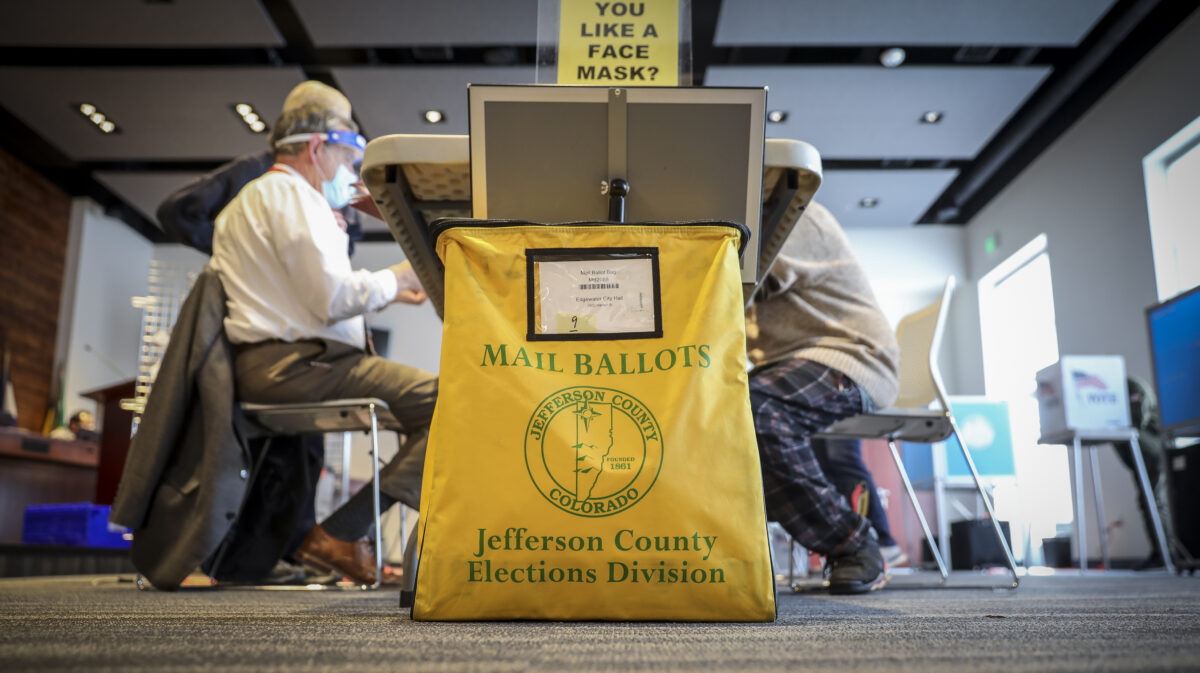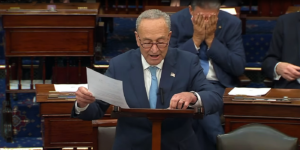Some states expand use of mail-in ballots—while others are limiting their use over security concerns
After the unprecedented expansion of mail-in voting in the 2020 election, dozens of states changed their mail-in voting rules. Republican-leaning states tended to introduce measures to make voting more secure, but less convenient. Democrat-leaning states were more likely on the opposite track.
At least 36 states passed bills pertaining in some way to mail-in voting, according to the left-leaning Voting Rights Lab.
Much of the change pertained to issues arising out of the 2020 election, where many states relaxed rules on absentee voting using the COVID-19 pandemic as justification. While many Democrats portrayed those changes as not only necessary but worth preserving for good, Republicans were more likely to see them as harmful one-off excesses that undermined election integrity. This year’s flurry of election bills generally reflects these sentiments.
No Request, No Ballot
Some state officials last year decided to send mail-in ballots to all registered voters, even though local election laws required voters to request such ballots first. This year, a number of states enacted laws to prevent such moves in the future.
States including Arkansas, Arizona, Florida, Georgia, Iowa, and Texas expressly banned their election officials from sending out mail-in ballots or sometimes even mail-in ballot applications to voters who have not requested them. North Dakota passed the ban too, but added an exception for jurisdictions that conduct elections primarily by mail. In addition, states including Kansas, Kentucky, and Texas banned officials from changing their own election rules set by law.
California, Vermont, and Nevada did just the opposite, stipulating by law that ballots will be mailed to all registered voters before every election.
While universal vote-by-mail schemes make voting more convenient, conservatives have criticized them for opening doors to fraud. Voter rolls are notoriously inaccurate, often including people who’ve moved out of state or passed away. Ballots delivered to wrong addresses could potentially be seized on by cheaters, some Republicans warned.
In the 2020 election, more than 1.1 million mailed ballots bounced as undeliverable, according to the Public Interest Legal Foundation (PILF), an election integrity watchdog. Another nearly 15 million mailed ballots weren’t voted or otherwise returned.
Signature Matching
One security measure to prevent cheating is a signature on the ballot envelope that needs to match the one officials have on record. However, some states changed their signature matching rules this year.
In a bill passed in September, California lawmakers made it more difficult to disqualify a ballot for signature mismatch. If an elections official determines that the signature “possesses multiple, significant, and obvious differing characteristics when compared to all the signatures in the voter’s registration record,” then two more election officials must review the signature. Each of those officials must find “beyond a reasonable doubt that the signature differs in multiple, significant, and obvious respects when compared to all the signatures in the voter’s registration record.” Only then would officials set aside the ballot and try to contact the voter with an opportunity to cure the issue. Previously, the law had a ballot set aside right after an election official found a signature mismatch.
California voters now have up to 28 days to cure a ballot, depending on when local officials need to pass on the official results to the state.
In Colorado, which conducts universal vote-by-mail elections, ballot observers are now explicitly not allowed to challenge a ballot based on signature mismatch. The issue can only be addressed by election officials during the regular signature verification process.
In California, ballot observers can still challenge ballot signatures during the signature comparison process, but can no longer challenge ballots based on address verification.
In Florida, on the other hand, political parties and candidates now have pre-canvass access to ballot certificates and reference signatures, which makes it easier for them to challenge ballots.
Texas now explicitly allows watchers to observe the signature verification process. Previously, the law authorized watchers at early voting board meetings, but didn’t specifically allow them at signature verification meetings.
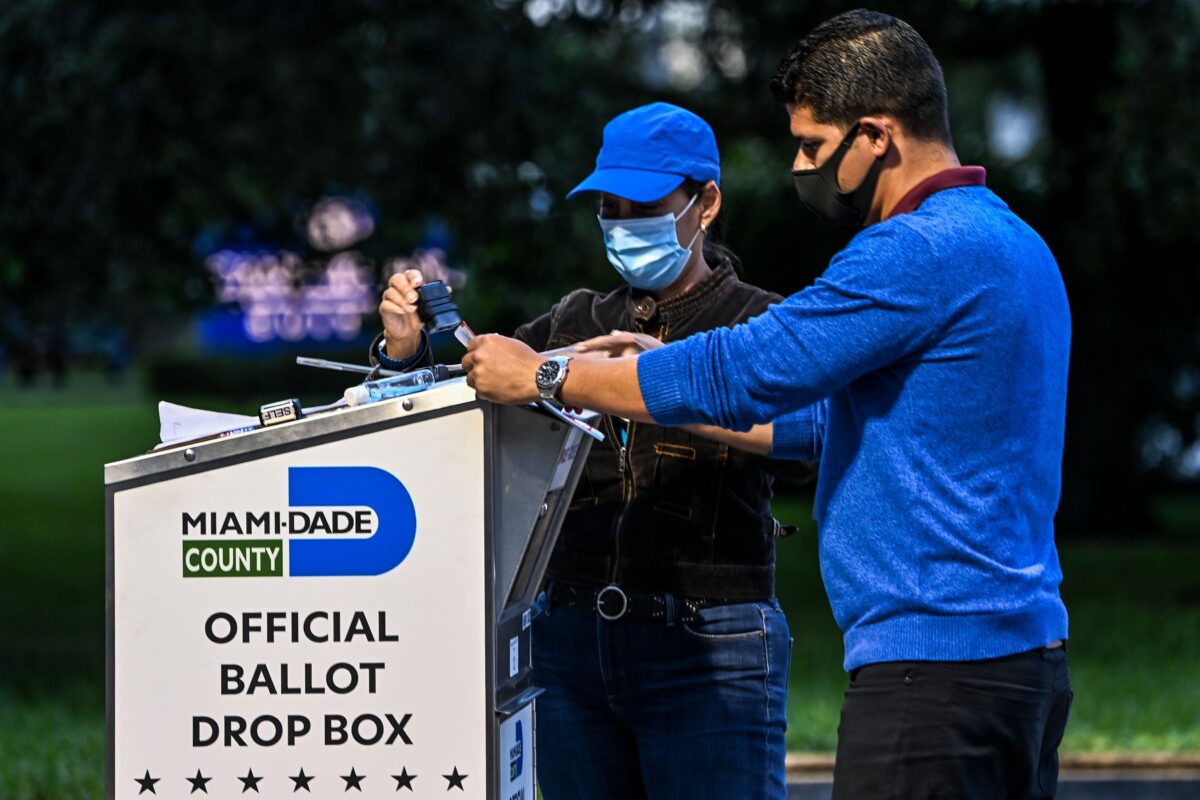
Idaho and Kansas, which previously lacked a statute explicitly requiring signature matching for mail-in ballots, instituted the rule this year.
Indiana used to have no option for a voter to cure a signature issue. If a county election board didn’t unanimously approve the signature, the ballot was rejected. In 2020, a court ordered the Secretary of State to put in place a curing procedure which has been this year codified by the legislature. Now, if officials find a signature defect, the ballot is deemed provisional. The board must notify the voter by mail, and, if available, email and phone, within two business days. The voter has until noon on the eighth day after the election to cure the ballot through a signed affidavit returned by mail, fax, email, or in person.
Mail-in Deadlines
The deadline for returning mail-in ballots has been an inflection point too. Some states require ballots to arrive by Election Day. Some allow ballots to arrive later as long as they are postmarked on or before Election Day. Several states have gone even further this year.
In California, ballots mailed, based on voter affidavit, on or before Election Day would now still count if received within seven days after the election, even if they’re missing postmark with a date.
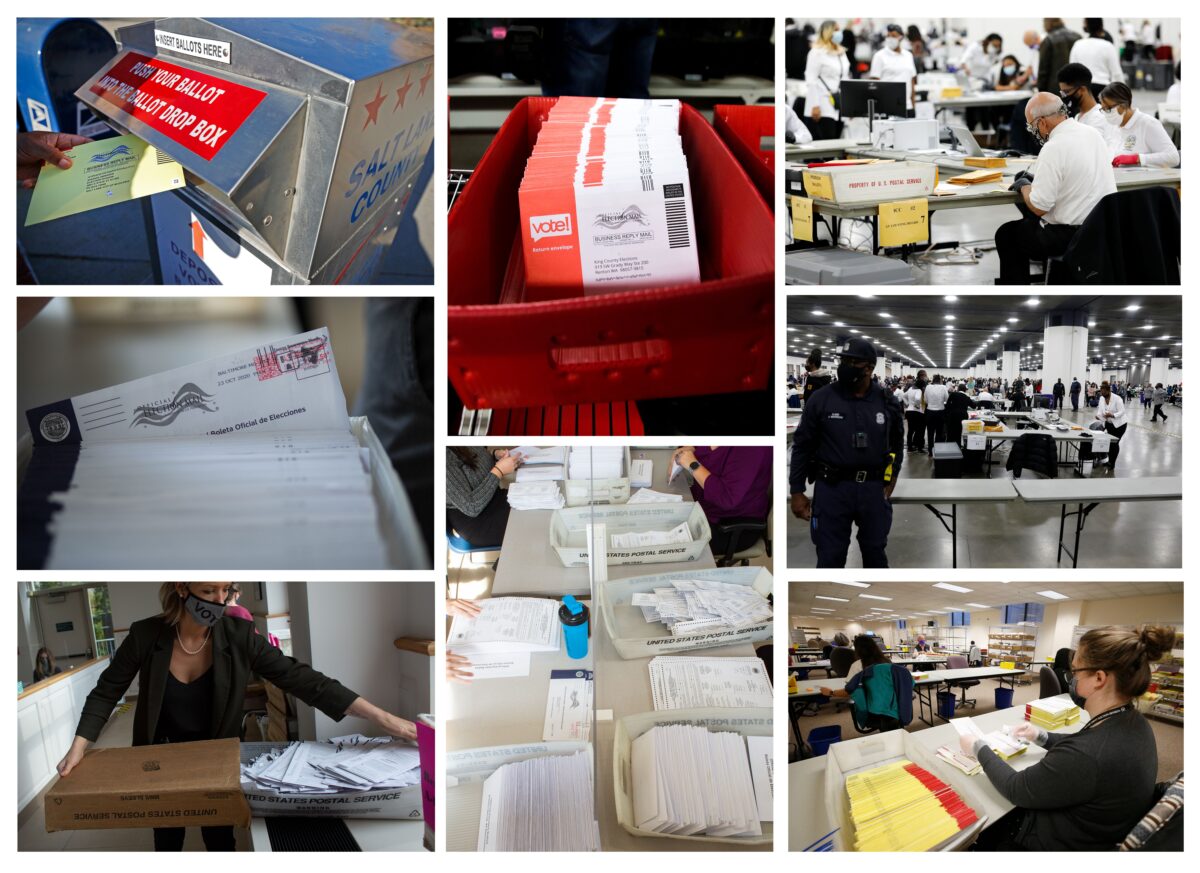
Oregon, which runs universal vote-by-mail elections, now accepts ballots returned by mail without a postmark within seven days after Election Day.
In Nevada, ballots without postmarks will also be accepted if they are received by noon on the third day after the election.
Kansas, on the other hand, created a new felony for knowingly backdating or otherwise altering a postmark of a mail-in ballot, except if authorized by federal law. The state also nixed the Secretary of State’s power to extend the mail-in ballot return deadline.
Tennessee passed a law requiring absentee ballots to have a watermark. Officials must check for it and reject ballots that don’t have it.
ID for Mail-In
Some of the toughest mail-in voting measures have been introduced in Georgia this year.
When applying for a mail-in ballot, Georgians need to provide an identification number from an ID issued by the state. If they do not have one, they can attach a photocopy of a different ID. Voters also need to put a state-issued ID number or the last four digits of their social security number on the absentee ballot outer return envelope (in a place that’s not visible when it’s sealed). Voters without any such number need to include a copy of an alternative ID with the ballot. Previously, voters only needed to include a signed oath affirming their identity.
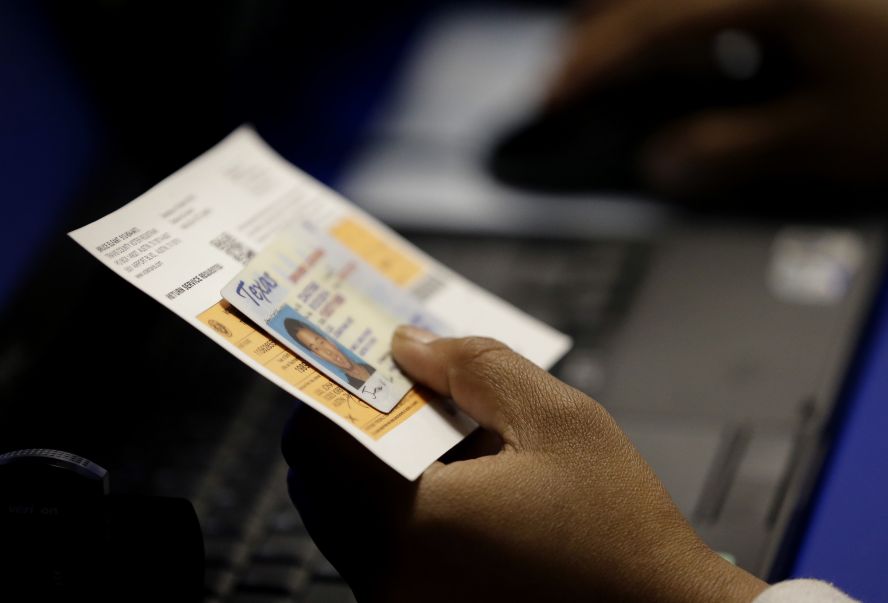
Florida now also requires voters to include their Florida driver’s license number, another ID number, or the last four digits of their Social Security number when requesting a mail-in ballot. The ballot applications now only count for one round of general elections instead of two.
Texas put in place a similar requirement this year for both requesting and returning mail-in ballots. The law still allows, however, for voters to attest they have neither ID nor social security number and still request and return the ballot.
Other Issues
A number of Republican-leaning states—to include Florida, Georgia, Kansas, and North Dakota—have also banned election officials from accepting private funding for running elections. The statutes are apparently a response to the $400 million Facebook head Mark Zuckerberg poured into local election offices last year. A PILF report concluded the money disproportionately favored Democrat-leaning areas.
Other areas where Democrat- and Republican-leaning states have moved in opposite directions include the use of ballot drop boxes. GOP-led legislatures seem to prefer fewer boxes, indoors, and under constant supervision. Democrat-led legislatures seemed more willing to allow however many boxes local officials want, even outdoor or mobile ones.

States including Illinois, Maryland, and Virginia codified this year permanent absentee voter lists. People on the list are to be sent mail-in ballots automatically before every election.
Arizona, on the other hand, made it easier to remove voters from its already existing permanent absentee voter list.
Democrat-led election bills weren’t completely bereft of new restrictions. California, for instance, banned ballot collection boxes that look like they are official ones. The state’s GOP last year set up its own ballot boxes, saying it was to demonstrate the inordinate permissiveness of California’s election rules. Democrats weren’t amused and accused the GOP of breaking the law. Not just California, but several other states this year banned ballot boxes that may give the impression they were set up by the government.

